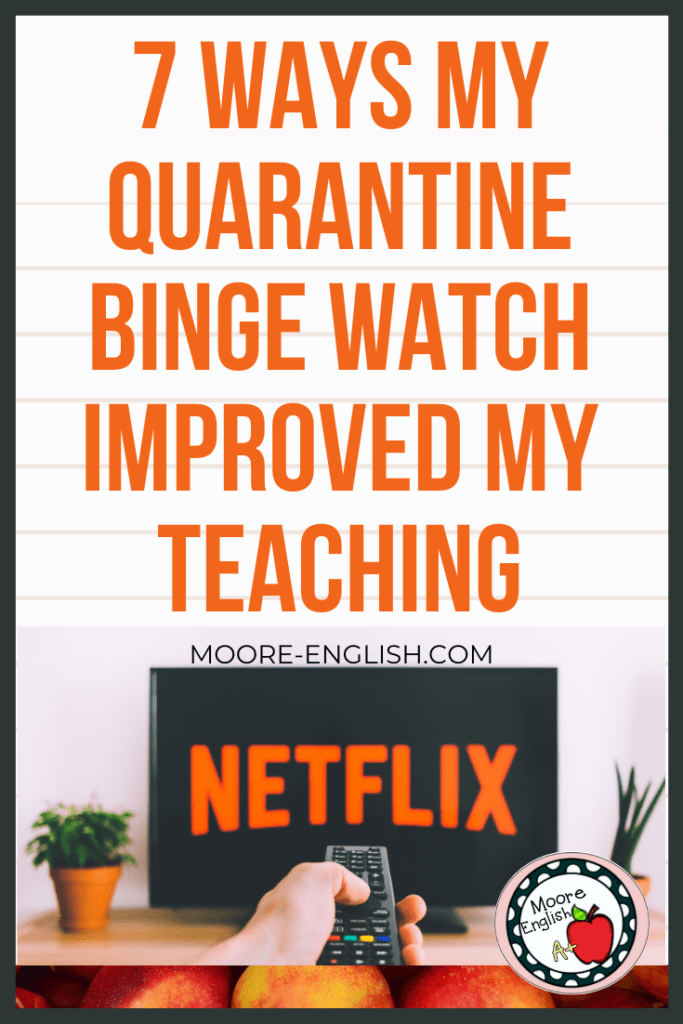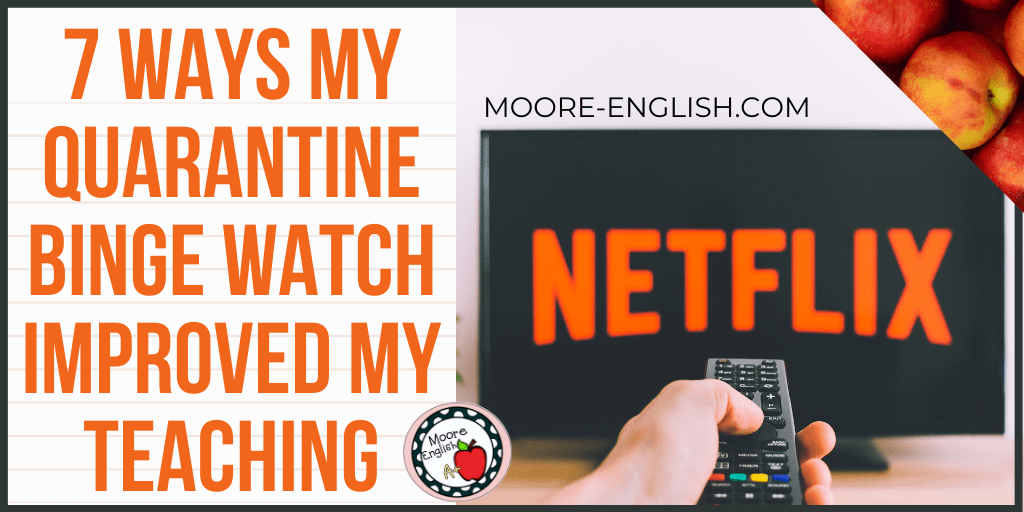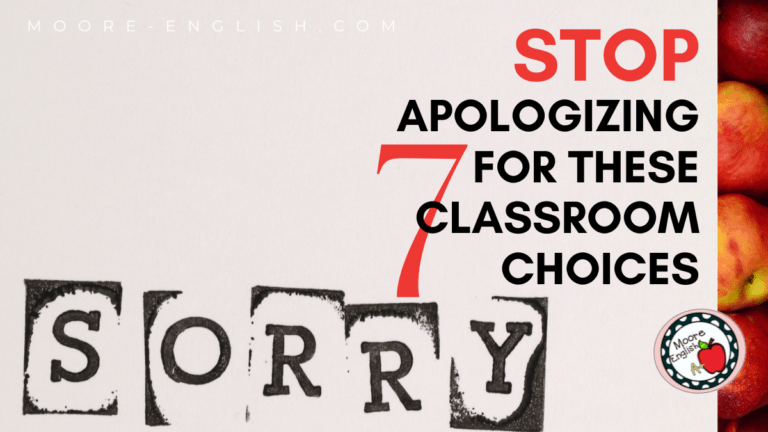Quarantine has provided lots of time for learning. This includes learning about distance learning, the digital classroom, and teaching in the time of COVID-19. It also means I’ve had time for more reading and, of course, for more television.
My quarantine binge watch has been diverse. But one thing has been consistent: in each show, there’s been some insight that can be taken back to the classroom. Check them out here!
Kindness Pays. Sarcasm does not.
One of the shows I’ve been watching is the reality show Survivor. Over and over again, players have switched alliances and changed sides because someone else was mean. In the context of the game, the lack of kindness and courtesy can cost players a million dollars. In the classroom, compassion is worth so much more.
By the same token, sarcasm also does not help complex situations. As a sarcastic person, that has not been a lesson I’ve learned easily. However, as I’ve read more and experienced more in the classroom, it’s become more apparent that sarcasm complicates communication. Like most tools, sarcasm has its place. But sarcasm translates poorly to the digital classroom. More than ever, kindness and sincerity are essential. Students are looking for genuine connection, and sarcasm gets in the way of that.
Good Teaching is Patient
I’ve written before about my love for Grey’s Anatomy. And while I adore Cristina Yang and Meredith Grey, they were not always great teachers. Over time, they both grow into capable teachers. Overwhelmingly, Cristina and Meredith’s early attempts at teacher lacked a key ingredient: patience.
Patience is always important in teaching. Patience is part of wait times, the revision process, and classroom management. In the quarantine, digital classroom, patience is even more important.
Anger is a Piece of Shredded Wheat
When I applied to be department chair, The Golden Girls played a significant role. (Leave me a comment if you want to hear that story.) And, in quarantine, the wisdom of Sophia Petrillo continues to pay off. Speaking to her daughter, Sophia says, “Anger is a lot like a piece of shredded wheat caught under your dentures. If you leave it there, you get a blister and you gotta eat Jell-O all week. If you get rid of it, the sore heals, and you feel better.”
That’s great advice all of the time. But it’s especially good advice right now. Being frustrated and feeling tapped is part of self-isolation, but those feelings don’t do anyone any good. They are not productive emotions. And they are counter-productive in the digital classroom. So clean your dentures.
This post this post may contain affiliate links. Please read the Terms of Use.
Communication Matters
Gilmore Girls, even the revival, has always held a special place in my heart. The dialogue is quick and whip-smart, and the allusions are excellent. So it’s ironic, then, that in a show known for its writing, communication is a problem that plagues the characters. One of my greatest frustrations with Lorelai and Emily Gilmore is their inability to communicate with one another. In part, their struggle comes from their incredible talking. Both women can talk. Both women know exactly what words to say to twist the knife.
But neither one is a good listener. And that’s a great lesson for everyone. Communication involves speaking and listening. In the digital classroom, listening is increasingly important. What are students saying about their success? What are students saying about their stress level? And what are students not saying?
Knowledge is Power
Never has it been more important than to be a master of your content and craft. Putting the classroom online is a struggle, so it’s essential to have content and craft under control. This is a lesson that was reinforced by The West Wing, my favorite show of all time! As the president seeks re-election, he struggles with his intelligence. Should he fully display his Nobel-Prize-winning intellect even if it makes him appear arrogant? Or should he play up his folksy charm, a skill at which his opponent excels? It’s a struggle that he spends several episodes resolving. In the resolution, his chief of staff explains, “There’s no such thing as too smart.” And that’s true in a digital, quarantine-style classroom too. This is not a time to let professional growth slide. It’s not a time to abandon a growth mindset.
Collaboration Works
You may laugh at me for this one. But I love Teen Wolf. It’s an adorable television show that my students and I have discussed too much. In my quarantine binge watch, the show reminds viewers of the importance of collaboration. On the show, the characters collaborate to save the world. (Which is the definition of distance learning.) As it is, collaboration is essential for successful distance learning. Right now, my digital team meetings are a source of comfort and inspiration. Getting to learn from other teachers’ experiences is invaluable. Read more advice from teacher peers here.
Relationships Matter
Is this a surprise? Not at all. Relationships are central to every show I’ve watched during quarantine. Relationships help players win Survivor, they help the Gilmore Girls move on, they help Meredith become a successful doctor, they win the president re-election, they provide the comedy in The Golden Girls, and they help some supernatural teenagers save the world.
And relationships are critical for success in the classroom whether it’s a physical space or a digital one. Providing students with creative work, feedback, and inspiration helps build and maintain relationships. And that’s how we all win.








